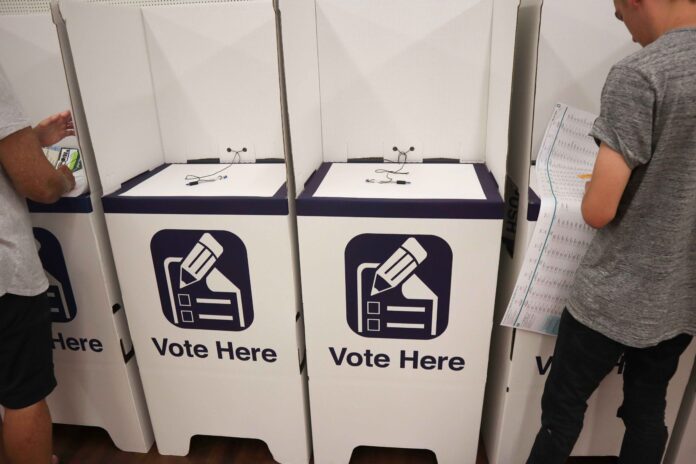As counting continues to determine the winners of Saturday’s local council elections, several local mayoral candidates are calling for an overhaul of the voting system.
In the race to become mayor, Rosanna Natoli led Ashley Robinson by about 3 per cent on the Sunshine Coast, while current deputy mayor Frank Wilkie held a comfortable lead over Ingrid Jackson in Noosa.
But voters on Saturday faced an array of problems, with reports of long lines and some polling locations running out of ballot papers.
“I was surprised how poorly the Electoral Commission of Queensland (ECQ) appears to have prepared for the election day,” Mr Robinson said.
“This was evidenced by the number of reports about ballot papers running out, people standing for more than an hour to vote and the inadequate number of election workers at many polling places, some of whom, according to reports, worked 14-hour days without a break.”
Related story: Election angst: confusion ahead of upcoming ballot
Fellow Sunshine Coast mayoral candidate Wayne Parcell said the system was antiquated and needed improving.
“The state government cannot ignore the anger that people feel about a 19th-century voting system with a carbon footprint the size of a small country,” he said.
“Many people asked why we cannot have electronic voting, with optional in-person attendance.
“A process that wastes resources and time is not sustainable and erodes the foundation of our democracy.
Noosa mayoral candidate Nick Hluszko also questioned why electronic voting couldn’t be considered.
“I feel that ECQ really needs to challenge itself, in this day and age, to do away with paper ‘how-to-vote cards’ and the need for many volunteers standing around pre-polling and polling booths getting cooked in the sun and getting drenched,” he said.

“We live in a digital world and we trust all of our confidential data to the government – tax, medical, and so on – without fear.
“Many countries around the world use digital formats for voting. I cannot see any compelling argument to justify prolongation of the current system.
“The waste, the cost, the problems of the current model are many – it is time to make a change.”
An ECQ spokesperson said there was currently no provision to allow for online voting.
“The ECQ is only the administrator of the legislation that governs elections and currently there is no provision in the legislation for online or internet voting. This is something that would need to be changed by the government,” they said.
The spokesperson said the ECQ acknowledged the wait times experienced by many electors and thanked them for their patience, following a busier than expected election day.
“Resourcing was bolstered in a number of areas across the state, ahead of election day, following lower than expected early voting numbers,” they said.
“Wait times were compounded by electors who were outside of their local government area on election day, with absentee voting not available for local government elections.
“The ECQ made every effort to ensure all Queensland electors who presented at a polling place before 6pm and wanted to cast a vote was able to cast their vote on Saturday. If any electors who presented at a polling place before 6pm are contacted by the ECQ, they are requested to contact us to advise of the situation so our records can be adjusted.
“Where ballot papers were depleted in some locations on election day, these were quickly replenished by our team of returning officers. This is not an out-of-the-ordinary occurrence, and electors who remained in those polling places received their ballot papers and cast their votes on Saturday.
“The ECQ offered five weeks of voting for Queensland electors with postal voting applications opening on January 29, and two full weeks of early voting, as well as election day.”
Do you have an opinion to share? Submit a Letter to the Editor at Sunshine Coast News via news@sunshinecoastnews.com.au. You must include your name and suburb.





